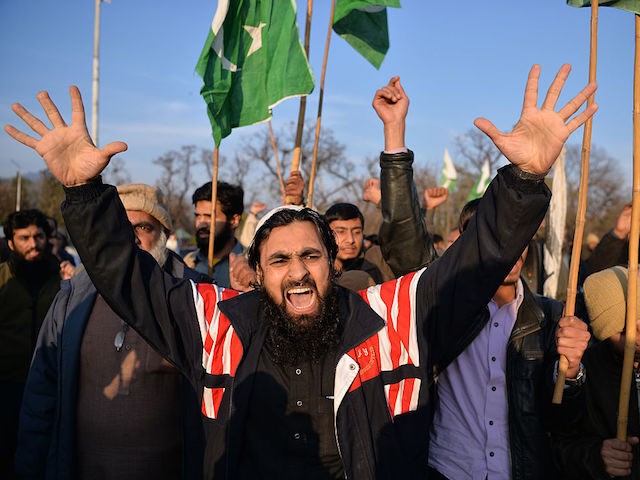Pakistan accused India on Thursday of “using terrorism as a state policy” to destabilize neighboring countries, Pakistani newspaper Dawn reported.
The allegation comes in direct response to Indian Ministry of External Affairs (MEA) spokesman Anurag Srivastavat’s statement on Wednesday that a new U.N. report “vindicates” India’s longstanding claim that Pakistan is the “epicenter of international terrorism” and that terrorist organizations enjoy “safe havens” within the country’s borders.
According to Dawn, Pakistan’s Ministry of Foreign Affairs (MOFA) said in a statement that the U.N. report independently assessed that “foreign terrorist fighters from India are traveling to Afghanistan to join the ISIL-Khorasan [ISIL-K, also known as ISIL’s South Asia Branch].” According to the statement, the report “noted that an Indian national, the leader of al-Qaeda in the Indian subcontinent, was killed by international forces last year in Afghanistan.”
MOFA’s statement refers to al-Qaida’s South Asia region chief, Asim Omar, who was killed in a suspected NATO raid in southern Afghanistan in September 2019. According to a Voice of America report at the time of the attack, although Omar was of Indian origin, the rest of the members of the al-Qaeda network killed or captured in the attack were from Pakistan. In addition to Omar, five “key members of the al-Qaida network” were killed, and “three key female members” were arrested, a statement from the office of the governor of neighboring Kandahar province said, adding that “all the members were from Karachi, Pakistan.”
According to Dawn, MOFA’s statement also denied what it described as “malicious Indian allegations” about the U.N. report claiming that Pakistan harbored terrorist organizations within its borders in “safe havens.” MOFA’s statement said Pakistan’s allegations were an attempt to “slander Pakistan and mislead the international community.” The statement further claimed that India had lied about the mention of Pakistan’s terrorist “safe havens” in the report.
“There is no reference to ‘safe havens’ in Pakistan in the [U.N.] report. The report is based on briefings provided in Afghanistan to the MT [monitoring team] by certain quarters who have long expressed skepticism about the Afghan peace process. This skepticism is not shared by the larger international community,” the statement said.
The “larger international community” has accused Pakistan of providing terrorist groups “safe haven” in the country for years, despite the government’s denial that this is true.
On February 14, a car filled with explosives rammed a bus carrying Indian police forces in the Indian state of Jammu and Kashmir, killing more than 40 Indian paramilitary forces and wounding at least 44 others. The Pakistan-based terrorist group Jaish-e-Muhammad claimed responsibility for the attack, which was the deadliest terrorist attack on Indian forces in Kashmir since 1989 when an insurgency against Indian rule there began. The U.S. issued two separate statements condemning the attack. Both statements used the term “safe haven” to refer to the cover Pakistan provides terrorists in the country.
“The United States calls on Pakistan to end immediately the support and safe haven provided to all terrorist groups operating on its soil, whose only goal is to sow chaos, violence, and terror in the region,” the U.S. press secretary stated.
“The U.N. designated, Pakistan-based terrorist group Jaish-e-Muhammad has claimed responsibility for this heinous act. We call on all countries to uphold their responsibilities pursuant to U.N. Security Council resolutions to deny safe haven and support for terrorists,” U.S. Secretary of State Mike Pompeo’s spokesman said.

COMMENTS
Please let us know if you're having issues with commenting.